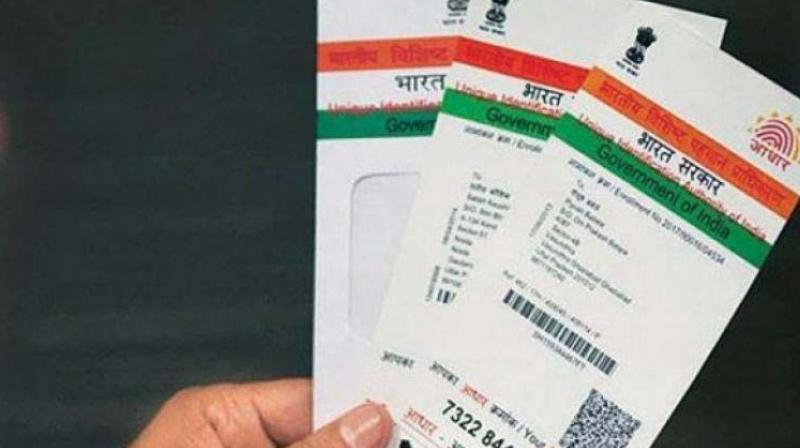Aadhaar exemptions welcome, says 93-year-old city petitioner
While the verdict has been widely welcomed, experts are divided when the same is considered at the government's implementation phase.

Bengaluru: As the Supreme Court pronounced the verdict on various petitions filed with regard to the Aadhaar Act on Tuesday, the highlights of the judgment included the apex court upholding the constitutional validity of the same, while some restrictions were put to its usage.
While the verdict has been widely welcomed, experts are divided when the same is considered at the government’s implementation phase.
“The judgment on the validity of Aadhaar is much welcome as it exempts banks, telecom companies and other private parties from using Aadhaar-related data after Section 57 of the Aadhaar Act was struck down,” said former Karnataka High Court judge Justice K.S Puttaswamy to Deccan Chronicle on Wednesday.
He also welcomed the apex court ruling out mandatory usage of the same for school admissions, and examination registrations. “However, the verdict reiterating that quoting Aadhaar number to file income tax returns and to apply for PAN (Permanent Account Number) is a good move,” remarked 93-year-old Justice Puttaswamy, one among the pioneers to file a petition challenging the legality of Aadhaar in the Supreme Court in 2012.
Reacting to the judgment, Biocon CMD Kiran Mazumdar-Shaw noted that that concerns raised on the basis of security and privacy issues were ‘totally unfounded’ as Aadhaar continues to be a face of identity to the citizens of India.
“While Aadhaar helps effective delivery of social welfare schemes to the right beneficiaries, people should avoid getting paranoid in providing the Aadhaar number to avail services. The final call whether to link or de-link the same from private services now should be left to the discretion of the individual instead of making it a mega bureaucratic problem,” she said.
At the same time, public policy expert Dr N. Chaitanya Pradeep demanded that the Central Government should take accountability of privacy concerns before making it completely mandatory for delivering schemes to the beneficiaries. “The government should use its resources to the fullest instead of a hurried approach upholding that the same should not be used as a surveillance mechanism,” he noted.
He added that proceeding with a suspicious approach to all citizens amount to disrespect to individual dignity, which in turn is unconstitutional.

